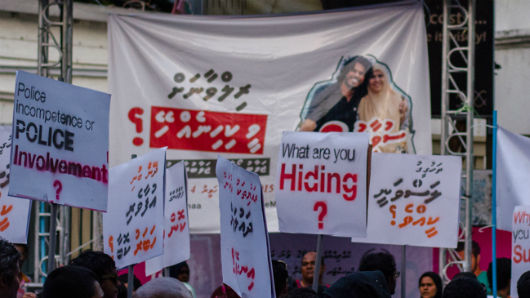Trial begins for Rilwan abduction suspects
The family of the third suspect, Mohamed Suaid, informed the court in response to a summons that he was dead, Judge Adam Arif said.

20 Sep 2017, 9:00 AM
Two suspects charged in connection with the abduction of journalist Ahmed Rilwan three years ago appeared in court Wednesday for the first hearing of their terrorism trial.
Judge Adam Arif gave Aalif Rauf and Mohamed Nooradeen – who remain free unlike other terror defendants – ten days to hire lawyers.
The family of the third suspect, Mohamed Suaid, informed the court that he was dead, the chief judge said.
Suaid was among five suspects arrested in Rilwan’s case in September 2014. According to the police, he left for Syria after his release from custody.
Become a member
Get full access to our archive and personalise your experience.
Already a member?
Discussion
No comments yet. Be the first to share your thoughts!
No comments yet. Be the first to join the conversation!
Join the Conversation
Sign in to share your thoughts under an alias and take part in the discussion. Independent journalism thrives on open, respectful debate — your voice matters.




